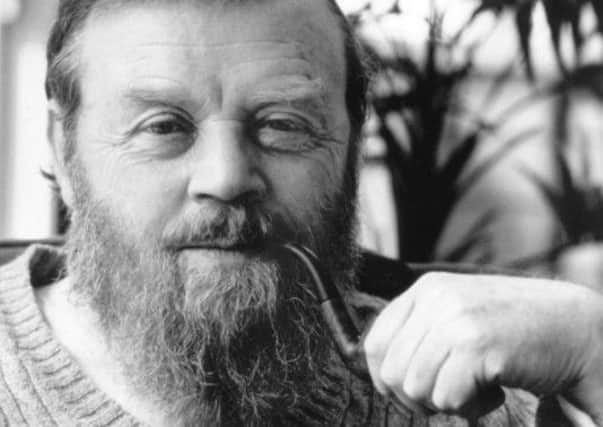Obituary: Farley Mowat, writer and conservationist


Farley Mowat was one of Canada’s most popular and prolific writers, who became a champion of wildlife and native Canadian rights and a sharp critic of environmental abuse.
Mowat, instantly recognisable by his luxuriant beard and the kilts of which he was fond – in celebration of his Scottish ancestry – wrote both novels and non-fiction for half a century, turning out 45 books and selling 17 million copies translated into 52 languages. He wrote with great range, from light, humorous fiction to historical accounts and dark tales of injustice, from children’s stories to tales of exploration, whale hunting and deep-sea salvaging.
Advertisement
Hide AdAdvertisement
Hide AdBut one theme remained constant: humanity’s relationship with nature, one in which he frequently cast people as a devastatingly destructive force.
He was probably most widely known for a 1963 book, Never Cry Wolf, in which he recounts his adventures as a biologist on a solo mission in 1946 to study Arctic wolves in the Keewatin Barren Lands of northern Manitoba. He finds a wolves’ den only a hundred yards from where a rickety bush plane had set him down on a frozen lake in May.
The book provoked widespread debate over its sympathetic portrayal of an animal that many Canadians thought should be exterminated. Disney made a film adaptation in 1983 with Brian Dennehy and Charles Martin Smith as a character based on Mowat.
He was self-effacing about his work. In 1974, in a guide to his papers housed at McMaster University in Hamilton, Ontario, he wrote, “I was content from the first to be a simple saga man, a teller of tales which hopefully had a moral of some sort or another, even if I was confused about exactly what it was.”
His writing career took off toward the end of the 1940s, after he had served in the Canadian military in Italy during the Second World War. Joining a relative on a scientific expedition to the Canadian Arctic, he hoped to find an antidote to the dispiriting experience of warfare. Instead he found widespread poverty and starvation among the Inuit people there, conditions he attributed to abuse and mismanagement by the Canadian government.
That trip and subsequent ones led to People of the Deer (1952), a book about the struggles of the Ihalmiut, an Inuit group in the Northwest Territories.
At a time when the Arctic was largely a distant mystery to the rest of Canada, the book brought Mowat legions of both admirers and political enemies in the south, where his findings were debated in parliament. In a review of Mowat’s follow-up book, The Desperate People, critic Walter O’Hearn called the author “Canada’s angriest young man” .
In Never Cry Wolf, Mowat learned about the lives of wolves with binocular clarity, about their treks to find food in winter and their territorial claims in summer, when they remain in their dens living on mice. (Mowat, in the interests of science, tried living on them, too, and found the diet nourishing.)
Advertisement
Hide AdAdvertisement
Hide AdHe portrayed wolves as patient and gentle with their own, sometimes even fond of practical jokes. They adopted orphan pups and baby-sat for other wolves’ offspring. They never killed more than they could eat. In one passage he described the father of the wolf family, whom he named George: “His dignity was unassailable, yet he was by no means aloof.
“Conscientious to a fault, thoughtful of others and affectionate within reasonable bounds, he was the kind of father whose idealised image appears in many wistful books of human family reminiscences.”
George, he added, was “the kind of father every son longs to acknowledge as his own”.
Elizabeth May, the leader of Canada’s Green Party and a long-time friend who had joined Mowat in environmental campaigns, said that much of the power in his books came from an absence of overt preaching.
“He was telling stories that made you laugh out loud,” she said, “but which made you see that the natural world was a big part of who we are.”
Mowat was frequently attacked for his sometimes casual approach to facts, an accusation to which he seemed indifferent. “I have always been wary of facts, I don’t trust them,” he wrote in the 1974 guide to his papers. “My experiences in many fields of human activity suggest that they generally conceal, or at least becloud, as much as, or more than, they reveal.”
Mowat had a dim view of the United States, one that did not improve when he was turned away from the border in 1985 under a now-defunct law banning political subversives. In a subsequent book, Mowat said he had been blacklisted for once telling a newspaper that he had fired his rifle at US bombers carrying nuclear weapons as they flew thousands of feet above Canada.
Farley McGill Mowat was born on 12 May, 1921, in Belleville, Ontario, to Angus and Helen Mowat. The family moved several times as his father, a librarian, repeatedly sought work, until they finally settled in Saskatoon, Saskatchewan. They had travelled there in distinctive fashion: in a ship’s cabin fastened on to a Model T truck chassis, what they called Rolling Home.
Advertisement
Hide AdAdvertisement
Hide AdMowat’s survivors include his wife, Claire, whom he married in 1965, and two sons from a previous marriage.
May said Mowat had been working on a book at his death, which came only days before his 93rd birthday. A frequent guest on Canadian television and radio, he had taken time out recently to appear on a Canadian Broadcasting Corp. radio programme to condemn a plan to set up internet hotspots in several of Canada’s national parks.
Calling it a “disastrous, quite stupid, idiotic concept,” Mowat said that parks should be for the preservation of nature.
“Human beings,” he added, “should be kept out of them as much as possible.”
• Copyright New York Times 2014. Distributed by NYT news syndication service.